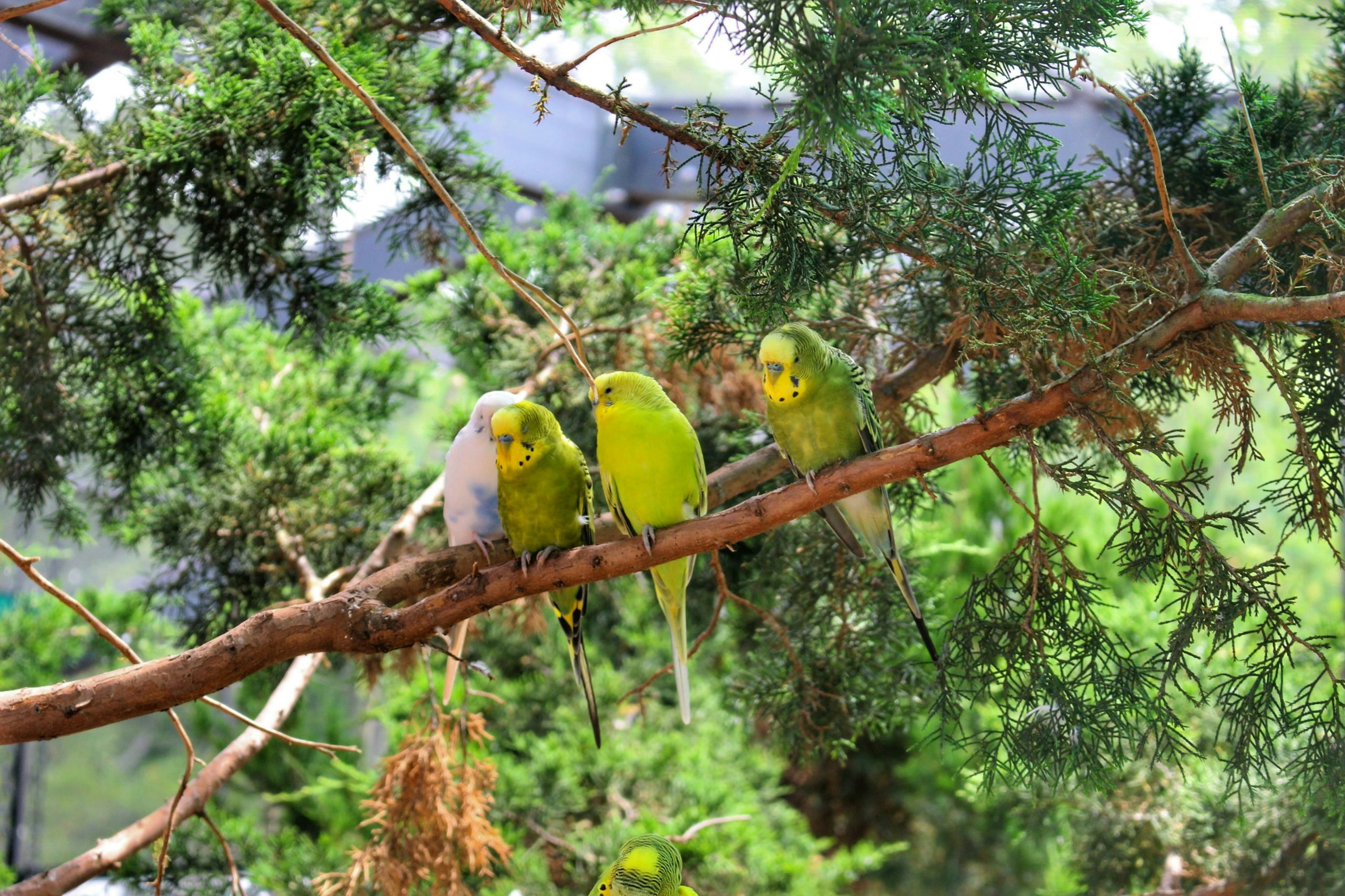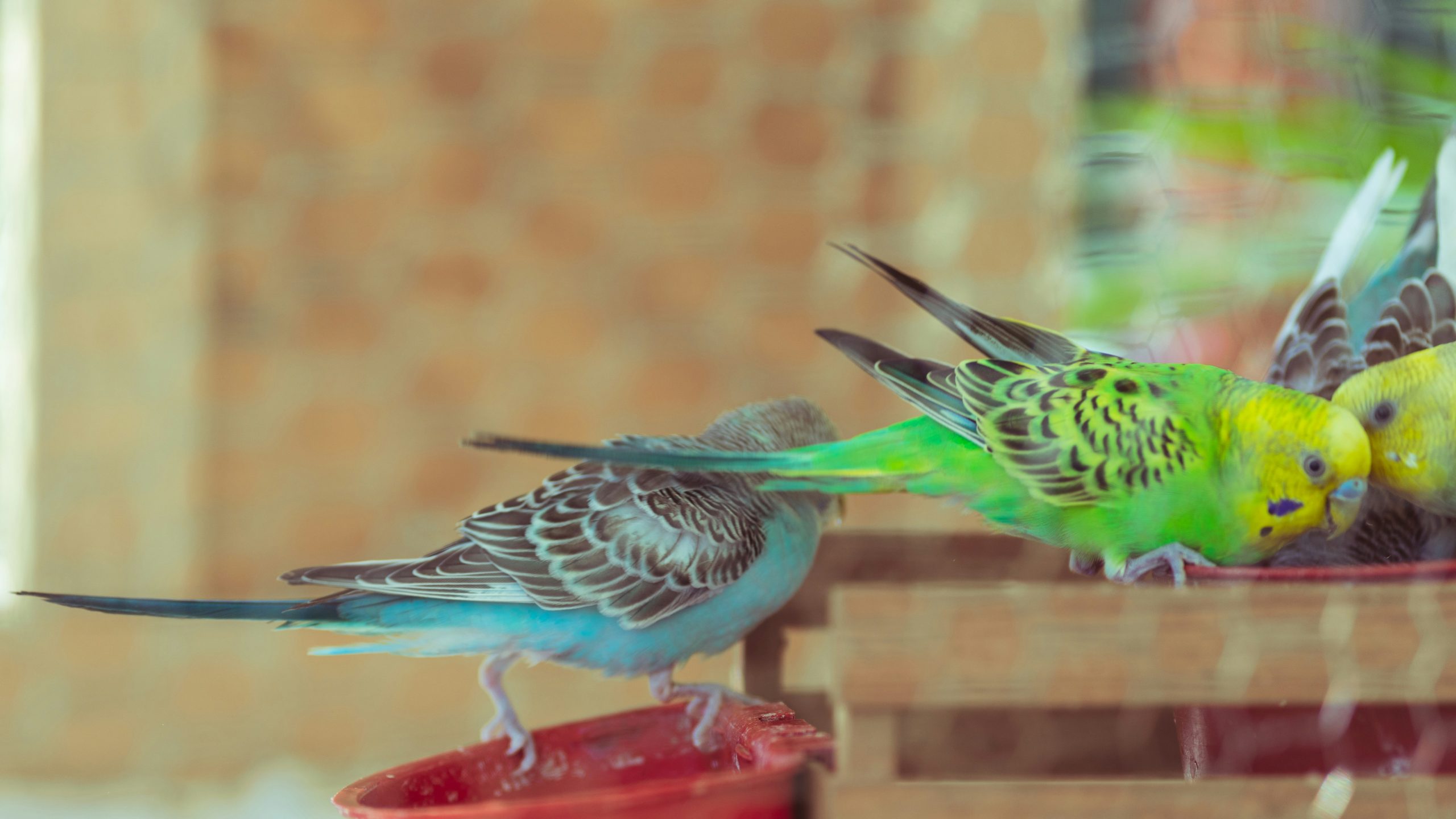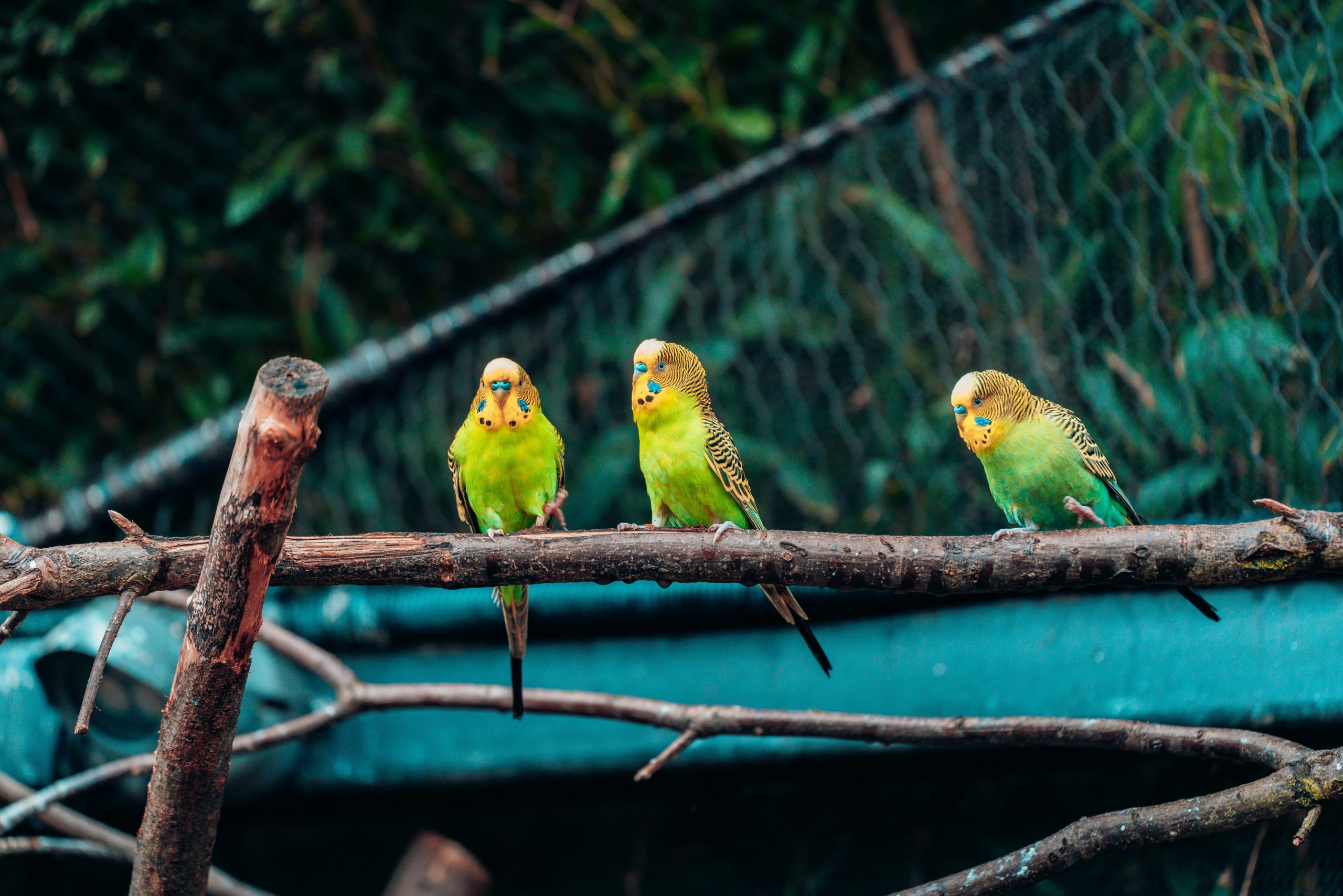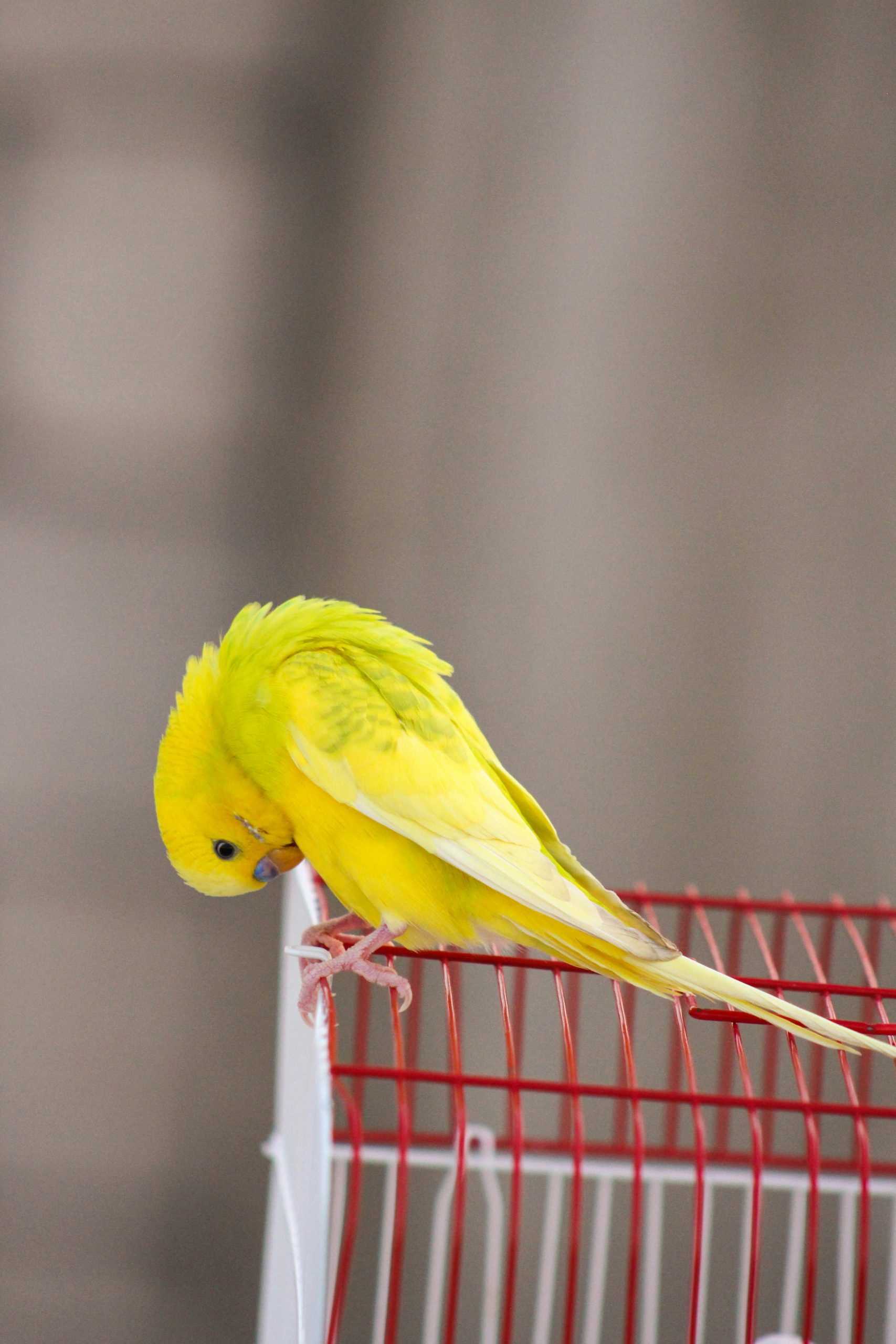Budgie wings are slightly open and shaking may indicate illness or discomfort. Consult a veterinarian for proper diagnosis and care.
Observing your budgie (parakeet) shaking or trembling can be concerning, but in many cases, it is a normal behavior. Understanding the potential causes can help you determine if it’s something to worry about or just a natural part of your bird’s behavior.
Expert Opinion on Budgie Wings Slightly Open and Shaking
Unfortunately, due to limitations as a large language model, I cannot provide a diagnosis for your budgie. However, I can share some expert opinions on potential causes of slightly open and shaking wings in budgies:
Dr. Jennifer Freeman, DVM, DACVB (Board-Certified Veterinary Behaviorist):
- Highlights that wing shaking in birds can be a normal behavior related to preening, stretching, or temperature regulation.
- However, it can also indicate stress, illness, or injury.
Dr. Susan Gingell, DVM (Avian Veterinarian):
- Emphasizes the importance of considering the budgie’s overall health and behavior alongside wing shaking.
- Suggests looking for signs of illness like lethargy, fluffed feathers, or difficulty breathing.
Case Study:
Scenario: A budgie owner notices their pet holding its wings slightly open and shaking them occasionally. The budgie seems otherwise healthy, active, and is eating normally.
Possible Explanations:
- Preening: Budgies preen frequently to maintain their feathers. Wing shaking can occur during preening to fluff feathers and remove dirt.
- Stretching: Similar to humans, budgies stretch their wings after periods of rest. Shaking can happen as they extend and retract their wings.
- Temperature regulation: On hot days, budgies might pant and shake their wings to cool down.
Recommendations:
- Monitor the behavior for a few days.
- If the shaking persists or worsens, consult an avian veterinarian.
- Observe the budgie’s environment for potential stressors (new pets, loud noises).
Important Note:
This case study is for informational purposes only and should not replace professional veterinary advice. If you are concerned about your budgie’s health, always consult a qualified veterinarian for a proper diagnosis and treatment plan.
1.Your parakeet may be nervous
Budgies are prey animals, and their natural instincts can cause them to become nervous or anxious in certain situations. When a budgie feels threatened or stressed, it may start shaking or trembling as a way to prepare for flight. This behavior is often accompanied by other signs of nervousness, such as rapid breathing, puffed-up feathers, and a tendency to avoid interaction.
2.Your parakeet could be cold
Budgies are native to Australia and are accustomed to warm temperatures. If the ambient temperature in their environment drops too low, they may start shaking or shivering as a way to generate body heat. This behavior is similar to how humans shiver when they’re cold.
3.Your parakeet could be hot.
Just as budgies can get cold, they can also get overheated. If the temperature in their environment is too hot, they may start panting and shaking their wings slightly to help dissipate excess body heat. This behavior is a normal cooling mechanism for birds.
4.Your parakeet could be thinking about flying.
Budgies are highly intelligent birds, and they often engage in behaviors that mimic or prepare for flight. Before taking off, a budgie may slightly open and shake its wings, as if getting ready to take off. This behavior is a normal part of their natural instincts and doesn’t necessarily mean they are about to fly.
5.Your parakeet could be ill.
In some cases, shaking or trembling can be a sign of illness in budgies. If the shaking is accompanied by other symptoms, such as lethargy, lack of appetite, or difficulty breathing, it could indicate an underlying medical condition that requires veterinary attention.
WHAT CAUSES TREMBLING IN BUDGIES?
While shaking or trembling can be a normal behavior in budgies, there are several potential causes that warrant further investigation. Here are some common reasons why budgies may tremble:<h3>Medical Reasons</h3>
1. Illness or Disease
Certain illnesses or diseases can cause trembling or shaking in budgies. Some examples include: – Respiratory infections – Neurological disorders – Metabolic disorders – Toxin exposure
2. Seizures
Seizures are a medical emergency in budgies and can cause severe trembling, convulsions, and loss of consciousness. Seizures can be triggered by various factors, including toxins, head trauma, or underlying medical conditions.
3. Neurological Issues
Neurological problems, such as brain trauma or tumors, can affect a budgie’s nervous system and lead to trembling, twitching, or other abnormal movements.
4. Toxin Ingestion
Ingesting certain household toxins, such as cleaning products, pesticides, or heavy metals, can cause trembling, seizures, and other neurological symptoms in budgies.
Non-Medical Reasons
1. Stress or Fear
As prey animals, budgies are highly sensitive to stress and fear. Environmental changes, loud noises, or perceived threats can trigger a stress response, leading to trembling or shaking.
2. Preening or Grooming
Budgies often shake or ruffle their feathers during preening or grooming sessions. This behavior helps them remove loose feathers, debris, and excess oil from their plumage.
3. Temperature Regulation
As mentioned earlier, budgies may shake or shiver to regulate their body temperature in response to cold or hot environments.
4. Pre-Flight Behavior
Before taking flight, budgies may slightly open and shake their wings as part of their natural pre-flight routine.
5. Dehydration or Malnutrition
Lack of access to fresh water or a nutritionally deficient diet can lead to dehydration or malnutrition, which can cause trembling or shaking in budgies.
WHY DOES A PARAKEET TWITCH?
Twitching is a related behavior to trembling or shaking in budgies, and it can have similar causes. Here are some common reasons why a parakeet may twitch:
1. Seizures or Neurological Issues
Seizures, brain trauma, or other neurological problems can cause abnormal muscle movements, leading to twitching or uncontrolled body jerking.
2. Toxin Exposure
Ingesting or inhaling certain toxins, such as household chemicals, lead, or avian-toxic plants, can cause neurological symptoms like twitching or trembling.
3. Stress or Fear
High levels of stress or fear can trigger a physical response in budgies, sometimes manifesting as twitching or trembling.
4. Sleep Twitches
Budgies, like other animals, can experience muscle twitches or jerking movements during sleep, which is a normal and harmless behavior.
5. Preening or Grooming
During preening or grooming sessions, budgies may exhibit slight twitching or shaking movements as they adjust their feathers or remove debris.
Why is my budgie open its wings and shaking?
There are several potential reasons why a budgie may open its wings and shake them:
- Pre-flight behavior: Before taking off, budgies
- Temperature regulation: If the budgie is feeling too hot, it may open and shake its wings to help dissipate excess body heat and cool down.
- Drying feathers: After a bath or getting wet, budgies will open and shake their wings to help dry their feathers.
- Preening: During preening sessions, budgies may open and shake their wings to help fluff and rearrange their feathers.
- Stress or excitement: In some cases, budgies may open and shake their wings when they are feeling stressed, anxious, or overly excited.
Why does my budgie slightly open his wings?
Budgies may slightly open their wings for various reasons, including:
- Stretching: Budgies sometimes open their wings partially as a way to stretch their muscles and feathers.
- Balance: When perching or moving around, budgies may slightly open their wings to help maintain balance.
- Courtship display: During courtship or breeding season, male budgies may open their wings slightly as part of their mating display.
- Intimidation: In some cases, a budgie may slightly open its wings as a way to appear larger and more intimidating, especially if it feels threatened or is defending its territory.
Why is my birds wings vibrating?
If you notice your budgie’s wings vibrating or trembling slightly, it could be due to a few reasons:
- Muscle control: Budgies have excellent muscle control over their wings, and slight vibrations or trembling could simply be a result of the bird adjusting or controlling its feathers.
- Excitement or anticipation: Budgies may exhibit wing vibrations when they are feeling excited or anticipating something, such as the arrival of their owner or the prospect of being let out of their cage.
- Courtship display: During courtship or breeding season, male budgies may vibrate their wings as part of their mating display to attract a female.
- Temperature regulation: In warm weather, budgies may vibrate their wings slightly to help circulate air and regulate their body temperature.
Why is my budgie wing twitching?
If you notice your budgie’s wing twitching or jerking involuntarily, it could be a sign of an underlying issue:
- Stress or fear: High levels of stress or fear can cause budgies to exhibit involuntary muscle movements, including wing twitching.
- Neurological issues: Conditions affecting the budgie’s nervous system, such as brain trauma, seizures, or toxin exposure, can lead to abnormal wing movements like twitching.
- Muscle strain or injury: If your budgie has strained or injured a muscle in its wing, it may twitch or spasm involuntarily.
- Sleep twitches: Like other animals, budgies can experience muscle twitches or jerking movements during sleep, which is generally harmless.
If the wing twitching is accompanied by other concerning symptoms, such as lethargy, loss of appetite, or difficulty breathing, it is important to consult an avian veterinarian.
Why is my budgie shaking?
There are several reasons why a budgie may shake or tremble:
- Cold temperatures: Budgies may shiver or shake to generate body heat if their environment is too cold.
- Nervousness or fear: As prey animals, budgies can become nervous or anxious in certain situations, leading to shaking or trembling.
- Excitement or anticipation: Budgies may shake or tremble when they are excited or anticipating something, such as being let out of their cage or receiving a treat.
- Illness or medical condition: Certain illnesses, neurological disorders, or toxin exposure can cause shaking or trembling in budgies.
- Pre-flight behavior: Before taking off, budgies may slightly shake their wings as part of their natural pre-flight routine.
If the shaking is accompanied by other concerning symptoms or appears to be excessive, it is advisable to consult an avian veterinarian.
Why do female birds flutter their wings?
Female birds may flutter their wings for several reasons:
- Courtship display: During the breeding season, female birds may flutter their wings as part of their courtship display to attract potential mates.
- Nest building: When preparing a nest or lining the nest with feathers, female birds often flutter their wings to dislodge loose feathers.
- Territorial behavior: Female birds may use wing fluttering as a territorial display, particularly when defending their nest or nesting area.
- Begging for food: Younger female birds may flutter their wings as a way to beg for food from their parents or other adult birds.
- Stress or agitation: In some cases, excessive wing fluttering can be a sign of stress or agitation in female birds, especially if they feel threatened or disturbed.
Is it normal for birds to shiver?
Yes, it is normal for birds to shiver or tremble in certain situations:
- Temperature regulation: Birds may shiver or shake their feathers to help generate body heat when they are feeling cold.
- Preening: During preening or grooming sessions, birds often shake or ruffle their feathers to remove dirt, debris, or excess oil.
- Pre-flight behavior: Before taking off, many bird species will shiver or shake their wings as part of their pre-flight routine.
- Drying off: After a bath or getting wet, birds may shiver or shake their feathers to help dry themselves off.
- Stress or anxiety: In some cases, excessive shivering or trembling can be a sign of stress, fear, or anxiety in birds.
If the shivering or trembling appears to be excessive or is accompanied by other concerning symptoms, it is advisable to consult an avian veterinarian.
What is it called when birds shake their wings?
When birds shake or ruffle their wings, it is commonly referred to as “wing-flicking” or “wing-whirring.” This behavior serves several purposes:
- Feather maintenance: Wing-flicking helps birds to rearrange, fluff, and maintain the condition of their feathers.
- Drying: After a bath or getting wet, birds will often engage in wing-flicking to help dry their feathers.
- Temperature regulation: In warm weather, wing-flicking can help circulate air and regulate body temperature.
- Courtship displays: During breeding season, some bird species may use wing-flicking as part of their courtship displays.
- Preening: Wing-flicking can also be a part of a bird’s preening routine, helping to dislodge debris or loose feathers.
Do birds shake when happy?
Yes, many bird species exhibit certain behaviors that can be interpreted as signs of happiness or contentment, and shaking or flicking their wings is one of those behaviors:
- Wing-flicking: When birds are feeling happy or relaxed, they may engage in wing-flicking or wing-shaking as a way to fluff up their feathers and maintain their plumage.
- Feather ruffling: Happy birds will often ruffle their feathers, which can involve slight wing movements or shaking.
- Singing or vocalizations: Many bird species will sing or vocalize when they are in a content and happy state.
- Playing or exploring: Birds that are happy and comfortable in their environment will often engage in playful behaviors, such as exploring their surroundings or interacting with toys or perches.
- Appetite: A good appetite and willingness to eat can also be a sign that a bird is feeling happy and content.
However, it’s important to note that these behaviors can also occur in other contexts, such as during courtship, preening, or temperature regulation. Observing your bird’s overall behavior and body language is essential in determining their emotional state.
How do I know if my budgies wings are hurt?
If you suspect that your budgie’s wings may be injured or hurt, look out for the following signs:
- Favoring one wing: If your budgie is favoring or holding one wing differently than the other, it could indicate an injury or strain.
- Difficulty flying or flapping: An injured wing may cause your budgie to have trouble flying or flapping its wings normally.
- Visible injuries: Look for any visible signs of injury, such as cuts, bruises, swelling, or bleeding on the wings or surrounding areas.
- Abnormal wing positioning: If one or both wings are held in an abnormal position or appear to be drooping, it could be a sign of an injury.
Conclusion: budgie wings slightly open and shaking
Observing a budgie with its wings slightly open and shaking can be a common occurrence, but understanding the underlying reasons is crucial. While it is often a natural behavior related to preening, temperature regulation, or pre-flight preparations, it can also indicate issues like stress, fear, illness, or neurological conditions. By being attentive to the context and accompanying symptoms, and seeking guidance from an avian veterinarian when necessary, you can ensure your budgie’s well-being and provide a nurturing environment that promotes healthy behavior. Remember, every budgie is unique, and by learning to interpret their body language, you can strengthen the bond and provide the care they deserve.
FAQs
1. Why is my budgie open its wings and shaking?
- Budgies may open their wings and shake for various reasons, including cooling down if they’re too hot, stretching their muscles, or displaying contentment or excitement.
2. Why does my budgie slightly open his wings?
- Budgies might slightly open their wings for comfort, balance, or to adjust their body temperature. It could also be a sign of relaxation or contentment.
3. Why is my bird’s wings vibrating?
- Wing vibration in birds can indicate excitement, stress, or even illness. It’s essential to observe your bird’s overall behavior and health to determine the cause.
4. Why is my budgie wing twitching?
- Wing twitching in budgies could be due to nervousness, discomfort, or muscle fatigue. If it persists or is accompanied by other concerning symptoms, consult a veterinarian.
5. Why is my budgie shaking?
- Budgies may shake due to cold temperatures, nervousness, excitement, or illness. Understanding the context and observing other behaviors can help determine the cause.
6. Why do female birds flutter their wings?
- Female birds may flutter their wings as part of courtship displays, to maintain balance, or to express excitement or contentment.
7. Is it normal for birds to shiver?
- Birds may shiver to generate body heat if they’re cold. However, excessive shivering or shivering in warmer temperatures could indicate health issues and should be monitored closely.
8. What is it called when birds shake their wings?
- Wing-shaking behavior in birds can serve various purposes, including drying feathers after bathing, stretching muscles, or releasing excess energy.
9. Do birds shake when happy?
- Yes, birds may shake or flutter their wings when happy or excited, especially during playtime or interactions with their owners.
10. How do I know if my budgie’s wings are hurt?
- Signs of wing injury in budgies may include favoring one wing, reluctance to fly or perch, changes in wing position, or visible signs of trauma. A veterinarian should assess any suspected injuries.
11. Do budgies shake when cold?
- Yes, budgies may shake or shiver when they’re cold, as a way to generate body heat and stay warm.
12. Why is my budgie shaking and not moving?
- If your budgie is shaking and not moving, it could indicate illness, injury, or extreme stress. Immediate veterinary attention is recommended.
13. How do I know if my budgie is stressed?
- Signs of stress in budgies can include excessive vocalization, plucking feathers, changes in appetite or behavior, and physical symptoms like rapid breathing or trembling.
14. How do you know if your bird trusts you?
- A bird that trusts its owner may exhibit relaxed body language, seek out physical contact, vocalize positively, and readily eat from the owner’s hand.
15. Why does my budgie tilt his head when I talk to him?
- Budgies may tilt their heads to better hear or see their owners, to express curiosity, or as a sign of attention or engagement.
16. Why do budgies flex their wings?
- Wing flexing in budgies can serve multiple purposes, including stretching muscles, maintaining balance, or signaling comfort or relaxation.
17. Do birds flutter wings when happy?
- Yes, birds may flutter their wings when they’re happy, excited, or content, especially during social interactions or playtime.




